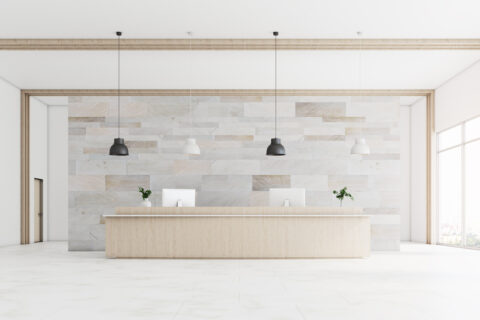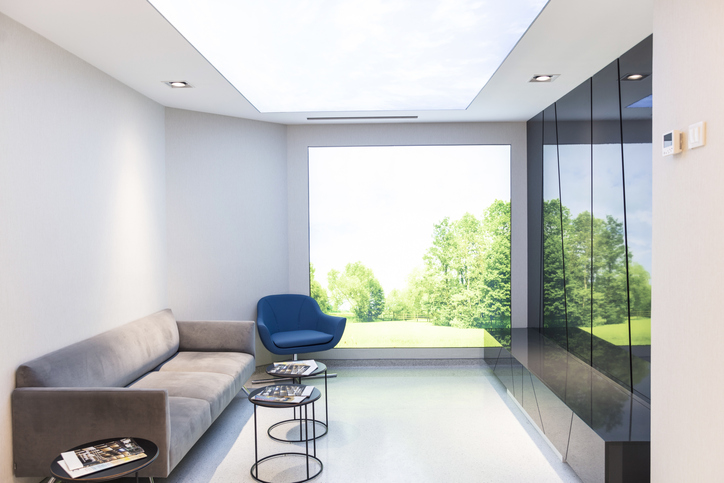The quality of sleep plays an important role in maintaining beautiful skin. In particular, the relationship between sleep and acne is deep, and good sleep is a shortcut to beautiful skin. Here we explain how sleep affects skin health, especially acne, and introduce improvements you can implement in your daily life. Improve the quality of your sleep and achieve your ideal beautiful skin.

Graduated from the Faculty of Medicine, National Kumamoto University. After serving as the director of major beauty clinics in Japan, etc., he opened Aladdin Aesthetic Clinic in 2023. He is a professional in aesthetic medicine with a doctorate in anti-aging research and many years of experience. With the motto of "Toward the realization of cosmetic medicine without lies," he aims to be the "Only One" together with his patients.
The "Sleep and Skin" Relationship You Need to Know

Achieving beautiful skin is not only about good skin care products and access to medical care, but also about sleep. That sleep is an essential component of physical and mental health, and its impact is immeasurable, especially in skin health. Here we will delve into the effects of sleep on the skin and how sleep deprivation can affect acne and other skin problems.
Sleep and Skin Health
During sleep, our bodies recover from daytime damage and cellular regeneration takes place. This process is especially important for skin health, and lack of sleep can interfere with this regenerative process and cause premature skin aging. Scientific studies have shown that getting enough sleep helps maintain the skin's moisture balance and increases the skin's resistance to external stresses such as UV rays and environmental pollution.
In addition, growth hormone is secreted during sleep, which promotes skin cell repair and regeneration. This process is essential for maintaining skin elasticity and preventing fine wrinkles and sagging.
Effects of Sleep Deprivation on Skin
Sleep deprivation increases levels of the stress hormone cortisol. Excessive cortisol production leads to overproduction of sebum, which promotes clogged pores and inflammation, the main causes of acne. Additionally, lack of sleep can reduce the skin's ability to retain moisture, leading to dry and sensitive skin.
The immune system of the skin is also highly dependent on sleep. Without proper sleep, the skin's defenses against bacterial infections and external stimuli are compromised, increasing the risk of acne and other skin problems.
How to improve the quality of sleep that leads to beautiful skin? Simple Practical Steps

Quality sleep is an essential component of maintaining healthy skin. Good sleep is essential not only to refresh the body and mind, but also to regenerate and repair the skin. Here we offer practical advice, focusing on optimizing your sleep environment, the importance of a bedtime routine, and the ideal amount of sleep and how to get it.
Optimization of the sleep environment
Improving the sleep environment is one of the most effective ways to improve sleep quality. The key here is to make the bedroom a quiet, dark, and cool space. Specifically, the following points should be considered
- Appropriate Temperature Setting: The temperature in the bedroom is very important for comfortable sleep. Generally speaking, approximately 16 to 18 degrees Celsius is ideal.
- Use of light-shielding curtains: completely darkening the room promotes the secretion of the sleep hormone melatonin.
- Ensure a quiet environment: Using earplugs or a white noise machine to block out outside noise can be helpful.
Importance of bedtime routine
Establishing a bedtime routine is an effective way to signal to your body and mind that it is time to go to sleep. We recommend incorporating the following activities into your routine
- Light reading or meditation: calms and relaxes the mind.
- Warm baths: Raising the body temperature and then lowering it naturally helps promote sleep.
- Reduce screen time: Smartphone and computer use before bedtime should be avoided because they inhibit melatonin secretion and reduce sleep quality.
The ideal amount of sleep and how to get it
For adults, 7 to 9 hours of sleep at night is recommended. However, it can be difficult to get this ideal amount of sleep in our busy lives. Use the following methods to ensure the ideal amount of sleep.
- Short naps during the day: Short naps of 10 to 20 minutes can relieve daytime sleepiness without affecting nighttime sleep.
- Time management strategies: It is important to avoid late night work and activities and to prioritize bedtime.
- Adjusting sleep time on weekends: Keep the difference in sleep time between weekdays and weekends to a minimum, as a significant change in sleep time on weekends can upset the body's internal clock.
Good sleep is the first step to beautiful skin. By improving your sleep environment, establishing a relaxing bedtime routine, and making sure you get the ideal amount of sleep, your skin will be healthier and more radiant.
Change your lifestyle to prevent acne!

In addition to direct care for the skin, lifestyle adjustments in daily life are very important in solving acne problems. We need to take care of many aspects of our skin health, not just sleep, such as diet, exercise, and the impact of stress management on skin health.
Relationship between diet and skin health
Skin health is greatly influenced by the diet we consume on a daily basis. A diet rich in vitamins, minerals, and antioxidants can help repair the skin and reduce inflammation.
Vitamins A, C, E, zinc, and omega-3 fatty acids are especially helpful in preventing and treating acne. These nutrients are found in abundance in fresh fruits, vegetables, whole grains, nuts, seeds, and lean fish.
On the other hand, excessive consumption of sugar and processed foods can cause elevated insulin levels, which can exacerbate acne. A balanced diet is the first step in fighting off acne.
Positive effects of exercise on the skin
Regular exercise supports skin health by stimulating blood circulation and supplying oxygen and nutrients to skin cells. Sweating from exercise also helps to eliminate toxins from the body through the pores.
However, after exercise, it is important to properly cleanse the face so that the dirt expelled with sweat does not block the pores. Regular exercise also contributes to lower stress levels and decreases the risk of stress-induced acne exacerbation.
That stress is a major factor that can negatively affect skin health. Increased stress leads to an overproduction of the hormone cortisol, which in turn leads to an overproduction of sebum, which in turn leads to acne. Effective management of stress is therefore very important in the fight against acne.
Stress reduction can be achieved by devoting time to hobbies, meditating or practicing yoga, getting enough sleep, and exercising regularly. Stress management can have a positive impact on overall health as well as acne.
It is also important to have a skin care regimen that suits your own skin!
The journey to beautiful skin begins with understanding your own skin type and developing a skin care strategy accordingly. Everyone's skin type is different and can be characterized as dry, oily, combination, or sensitive. Learn more about acne care approaches for different skin types and how to choose the right skin care products.
Acne care approaches for different skin types
Moisturizing is most important for dry skin because the skin's barrier function is impaired. To keep moisture from escaping, choose a cream or lotion rich in moisturizing ingredients. In addition, the use of a gentle cleanser is recommended, as excessive cleansing can exacerbate skin dryness.
For oily skin, excessive sebum production is often the cause of acne. For this skin type, products containing ingredients such as salicylic acid are effective in balancing sebum. It is also important to choose non-comedogenic (non-pore-clogging) products that do not clog pores.
Mixed skin is characterized by parts of the face that are dry while the T-zone (forehead, nose, and chin) is oily. In this case, it is effective to use different products for different areas of the skin. For example, use products for oily skin on the T-zone and products with higher moisturizing power on dry areas such as the cheeks.
If you have sensitive skin, you need to minimize irritation. Choose products for sensitive skin that do not contain irritants such as fragrance, alcohol, or preservatives. Patch testing is also recommended when using new products.
Points to consider when selecting skin care products
Check the product's ingredient list to make sure it does not contain ingredients that may be harmful to the skin. It is also important to check that the product contains the necessary ingredients to improve the condition of your skin. Of course, it is important to know exactly what your skin type is and choose products that match it. If you are uncertain, consult a dermatologist or skin care professional.
A personalized skin care strategy is a shortcut to healthy skin. By understanding your skin type and needs, and choosing the right products for them, you can effectively address acne and other skin concerns.
Skin care tips to keep in mind when undergoing cosmetic treatment
In the weeks prior to your procedure, be sure to take proper care of your skin to keep it healthy. It is also important to refrain from consuming certain foods and supplements that may affect the procedure, if directed by your physician.
In addition, because the skin is especially delicate after cosmetic procedures, it is important to faithfully follow the aftercare instructions given by the physician. This includes moisturizing, protection from UV rays, and the use of medications as needed. It is also necessary to avoid strenuous exercise, saunas, and other activities that can be stressful to the skin for a certain period of time after the procedure.
Receiving cosmetic treatment is a form of self-investment. With proper clinic selection and careful aftercare, it is possible to maximize the effects of your treatment and maintain healthy, beautiful skin for a long time. Entrust your own skin to a trusted professional and begin your cosmetic medicine journey with peace of mind.
summary
Through the information here, it is clear that sleep quality and lifestyle adjustments are essential for acne prevention and skin health. Getting a good night's sleep, a balanced diet, moderate exercise, and effective stress management are key to maintaining beautiful skin.
Utilizing the latest cosmetic medical technologies and personalized skin care strategies can also help in effective acne care. The journey to beautiful skin is not completed in a day. Small steps taken today will lead to beautiful skin tomorrow.
At Aladdin Aesthetic Clinic, based on our many years of experience in cosmetic medicine and cosmetic dermatology and the knowledge of our doctoral degree, we provide counseling that aims to be "only one", offering the best treatment for each person we meet. We offer only the necessary treatments without any unnecessary information or suggestions.
Feel free to use our official LINE account for 24-hour counseling and reservations. Please feel free to contact us for free counseling for the first time or if you have any concerns.





